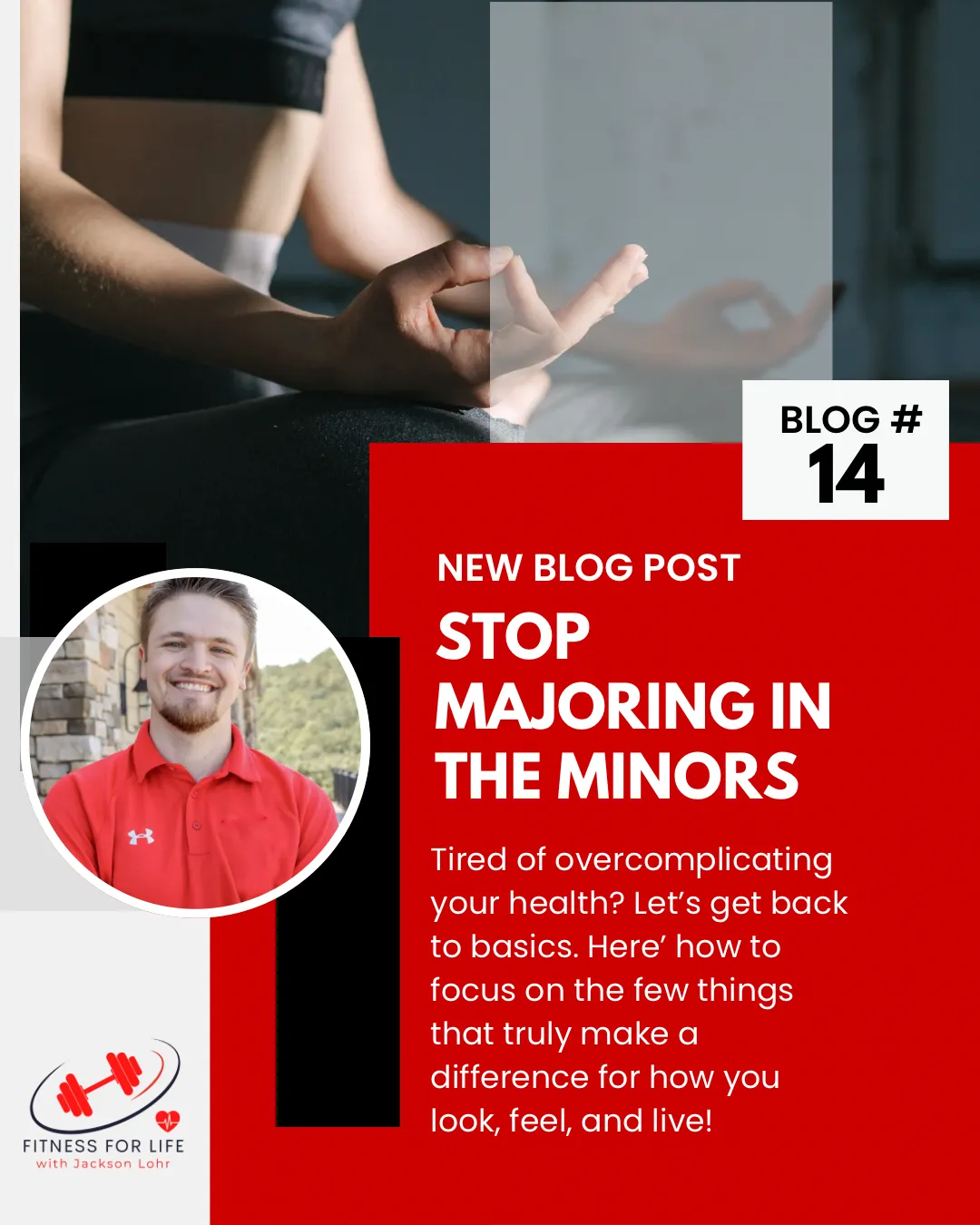
Stop Majoring in the Minors: What habits matter and what is just excess?
What Really Makes the Difference for Your Health
Life gets busy, and with so many health trends flying around, it’s easy to get caught up in the little stuff. But if you really want to feel better and see lasting results, it’s not about chasing every new idea—it’s about sticking to the basics that actually make a difference. Too often, we “major in the minors,” focusing on small details while missing the big picture. So, let’s zoom out and talk about what really matters for your health.
Focus on Protein
If there’s one thing that can instantly upgrade your diet, it’s getting enough protein. It helps with building muscle, keeping you full, and supporting overall health. Try to include a solid source of protein at every meal—think eggs, chicken, fish, tofu, or Greek yogurt. A good ballpark is around20 to 30 grams per meal. You don’t need to be perfect, just consistent.
Cook More, Eat Out Less, Eat your Fruits and Veggies
Cooking at home is one of the simplest ways to take control of what you’re putting into your body. When you make your own food, you get to decide what goes in it—and it usually ends up being healthier (and cheaper) than eating out. Try limiting takeout or restaurant meals to once a week or so. You’ll be surprised how much better you feel when most of your meals come from your own kitchen.
Additionally, one of the quickest ways to improve your health if you're not already doing it is to increase your fruit and vegetable intake! Most people are under-eating in this category, and it usually just takes a bit of planning to make sure these are getting into your routine. It doesn't take much: two to three servings of each daily will serve most people very well in maintaining and improving your health outcomes with this very simple approach to building your meals.
Keep an Eye on Your Blood Work
You can’t manage what you don’t measure. Getting regular blood work done helps you see where you stand and spot any issues early. It’s an easy way to learn more about your body—your energy levels, nutrition, and even hormones can all show up in those results. Think of it as checking your dashboard before you go on a long trip—you’ll know what needs attention before it becomes a bigger problem. This is one of the keys to deeper understanding of your health that particularly younger men have a hard time doing regularly (calling myself out, I know!), but the benefits of doing so can be life-saving! Not only that, but blood work is often completely free done 1-2 times per year with most insurance providers, so why not take advantage of this?
Move Your Body (and Keep It Simple)
When it comes to exercise, you don’t need anything fancy. Strength training and walking cover almost everything you need to get started with a good routine. Lifting weights (or even just your own bodyweight) helps you build strength and stay functional, while walking keeps your heart healthy and your stress levels in check. Focus on being consistent and gradually improving over time—more reps, more steps, more movement in general.
If there's a sport you enjoy, use it to develop your cardio! If not, I recommend pickleball! (I'm only half-joking, you should try it!)
If you're not using a sport to develop your cardio and you've done the above, starting to train for different intensities can really provide a robust improvement to your cardiovascular health! If, however, you've been diagnosed with a heart condition, please be sure to consult your cardiologist or your primary care physician before beginning any intense cardiovascular training.
Don’t Skimp on Sleep
You can do everything else right, but if your sleep is off, your body will let you know. Aim for7 to 9 hours a night and try to keep a regular sleep schedule. A few small changes—like putting your phone away an hour before bed or keeping your room cool and dark—can make a huge difference. Good sleep isn’t a luxury; it’s a basic part of good health. It's time we start treating it that way!
Take Care of Your Mind and Relationships
Health isn’t just about your body—it’s also about your mindset and the people around you. Strong relationships, meaningful conversations, and a sense of connection can do wonders for your mental well-being. Make time for the people who lift you up, and don’t be afraid to ask for help when you need it. A healthy life is one that feels full and connected, not just optimal in isolation.
If your habits and tendencies pull you away from the people you genuinely enjoy being with, you may want to reconsider the things you prioritize and how you order your time and your life.
Wrapping It Up
If you want to feel better, live stronger, and stay healthy long-term, focus on the big things—eating well, moving regularly, sleeping enough, and staying connected to others. Don’t let the small stuff steal your attention. Nail the basics first, and little else will matter.
